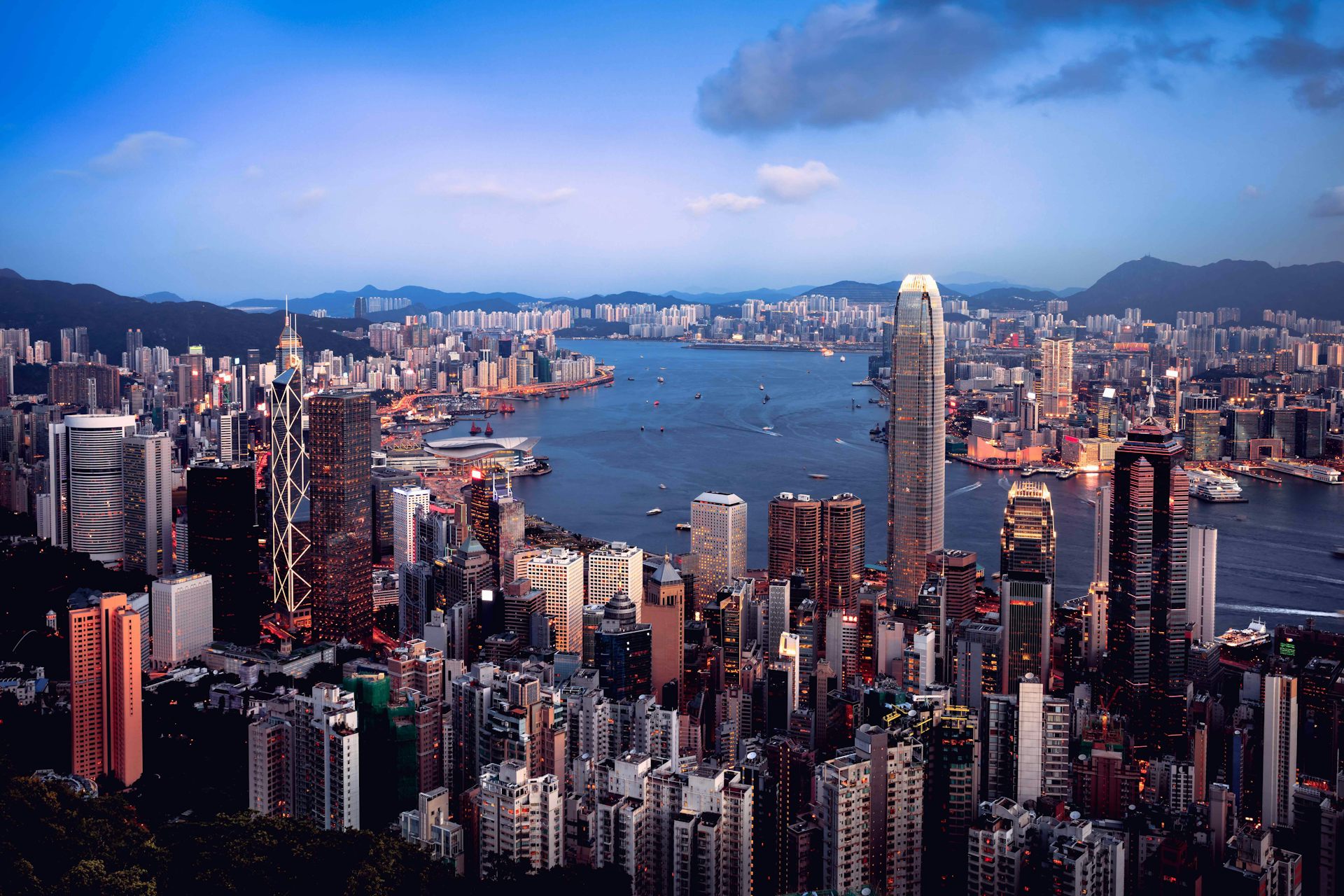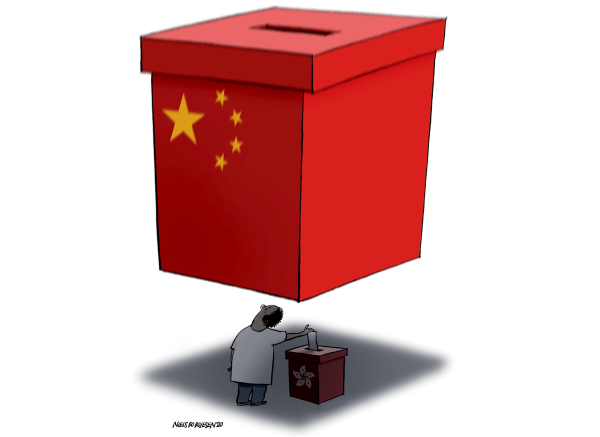
Squeezed between giant antagonists crunching huge bones of contention, Hong Kong has achieved within its own narrow territories a co-existence which is baffling, infuriating, incomprehensible, and works splendidly – on borrowed time in a borrowed place.

Before we dive into the British colonial rule of Hong Kong, we must understand what Hong Kong even is, at a primitive level. Hong Kong is a city near the South China Sea, on the Pearl River Delta. Its economy used to consist of farming and fishing, but Western influence accelerated foreign investment into the area and turned it into one of the most densely populated cities in the world. Today, it's one of the world's key financial centers and commerce ports, with high levels of business and development.

In the scope of modern history, Hong Kong was always "sandwiched" between competing world powers, and thus never had true autonomy. Most people know that Hong Kong is currently "sandwiched" between the Western powers and China, the latter of which has frequently violated Hong Kongers' civil rights and has enacted draconian laws. But even before its re-acquisition by China, Hong Kong was under British rule as one of its colonies.
Originally ruled by China, Hong Kong was ceded to Britain in 1842 through the Treaty of Nanking, and further turned over in 1860 following the Second Opium War. These events were largely British war victories over China, which left them with no choice but to sign away land, as the British wanted them to.
Hong Kong had many problems under British Rule. For instance, with a Laissez-faire economy, the capitalists became rich but the poor were left behind. Most people lived in poverty-stricken areas without much money. The economy also wasn't fair to local businesses, because most monopolies were British companies.
Colonial rule by foreign officials resulted in much confusion, since they didn't understand Cantonese, nor did they understand the Hong Kong people. As a result, housing and social services failed, and poverty was common among elders.
As a colony, Hong Kong had little freedom of expression or civil rights, and were Westernized almost immediately. As part of the colonialist tradition, children were taught English in school, which usually ended up benefitting the businesses and government. They didn't typically use English in daily life.

In 1997, through a series of negotiations, Britain agreed to give back Hong Kong to China. Hong Kong was promised a "One Country, Two Systems" policy for fifty years, which essentially guaranteed the city some level of governmental and civil autonomy, while still officially being under the CCP. It was designed to be a capitalist center that's still a part of China.
The integration was a big deal for both sides because failure to do so could hurt investment from abroad, as Hong Kong was important to China's economy. China's relations with Taiwan, Britain and the US would also get worse.
At first, Hong Kongers were generally optimistic about the handover. They had some level of autonomy through the Basic Law, which was a sort of mini-constitution passed as part of the handover deal. It gave the Hong Kong people various basic freedoms, such as the freedom of speech. The Basic Law was also supposed to prevent China from interfering in Hong Kong's internal politics.

Unfortunately, the good feelings didn't last very long. Hong Kong people were almost immediately suspicious of China, and distrusted its promises of following the "One Country, Two Systems" principle, as well as the Basic Law.

Early on, the suspicions were proven correct. China started to violate some of its promises made in the past; for example, the government turned out to be rigged in favor of Chinese politics.
The Basic Law turned out to give the people essentially no say in choosing the chief executive (analogous to the President), since most of the voting power was held by Chinese loyalists and business tycoons.
Laws were mostly decided by the "functional constituencies", who were decided by special interest groups, not the people, and had near-complete control over the legislative branch.
There were various legal concerns people had due to some unfair court rulings. For example, in 1997, the Provisional Legislative Council tried to restrict the right of abode laws but the Court of Final Appeal ruled in favor of allowing potentially millions of new Chinese immigrants. In 2001, a Chinese American professor in Hong Kong was detained in China for being convicted of harming China's national security. He was later returned, but evidence suggests that China probably let them take him back.
Another area of concern was the freedom of expression, which was supposedly secured under the Basic Law. In 1997-2004, free speech and assembly were respected by China.
For example:
However, the CCP got to choose what "free" really meant. For example, people generally weren't allowed to support two Chinas, nor criticize Chinese leaders.
After the 1997 turnover, there were a series of catastrophes that led to increased tensions:

But the people of Hong Kong didn't stay silent as these violations mounted on top of each other. Citizens became angrier and angrier that China was letting these things happen, and they fought back with organized protests.
For example, in 2003, protestors successfully got rid of a national security bill they believed was unjust. Additionally, the Hong Kong Federation of Students marched to the central district to protest against Chief Executive Chee-hwa and the Secretary of Justice for not upholding democracy in the "One Country, Two Systems" government. Similar things happened during this time, as the youth became more inspired to fight and not let bureaucrats decide their future.